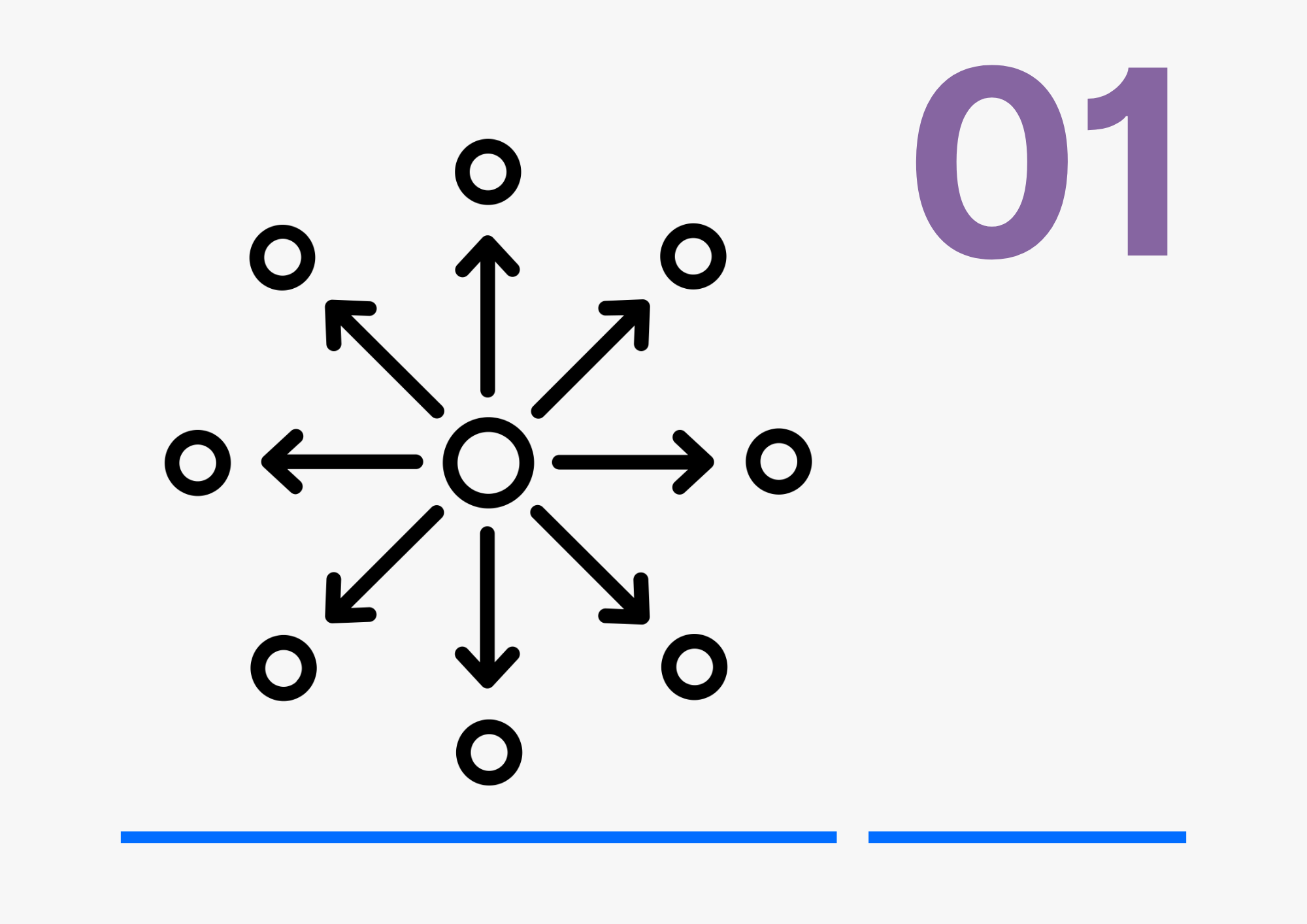Welcome to the first blog in our new series, “An Introduction to…”. Throughout this series, we’ll cover the key themes and topics in Decentralized Self-Sovereign Identity (DSSI). From Verifiable Credentials (VCs) and Decentralized Identifiers (DIDs) to Blockchain and Zero Knowledge Proofs (ZKPs), these articles will act as your guide for all things DSSI-related.
To kick things off, we’re looking at the core concept of Decentralized Self-Sovereign Identity itself, which will help set the scene for the following articles.
Let’s get started…
In 2017 the average person had just under 100 online accounts. Today that figure sits at 173. Each time an individual creates an account, they share and store highly sensitive personal data with numerous platforms and services that store that data in a centralized manner.
This creates a huge problem for the individual as they have no real control over their data, and it opens up the very real possibility of it being breached - given such a large attack vector. Just one of the 170+ services that we all use needs to be breached for our identity to become compromised.
And we’re all aware of the ever-growing threat of data breaches. IBM’s X-Force Threat Intelligence Index 2023 reported that 4.1 billion records were exposed in data breaches in the first half of 2023, a 52% increase compared to the first half of 2022.
In today’s world of digital interactions, protecting our identity has never been more important - and this is where Decentralized Self-Sovereign Identity comes in.
Understanding the basics
Put simply, Decentralized Self-Sovereign Identity allows individuals to take back control of their data and manage their identity without relying on the need for a centralized third party. This decentralized model massively reduces the attack vector by having each individual store their own data with their own private key, rather than having it stored in an organisation’s central database that can accessed by multiple employees of that organisation.
Through the use of digital wallets, individuals can store Verifiable Credentials (VCs), which are both tamper-proof and cryptographically secured. You can think of a Verifiable Credential as a digital counterpart to your existing physical identity documents.
These credentials enable selective disclosure - allowing users to share the minimum data required (e.g. name, age, address, etc). This data minimisation prevents them from having to share excessive amounts of data that may not be required for certain transactions.
Standards are presently emerging, championed by the W3C's guidelines for decentralized identifiers and verifiable credentials.
Interoperability is another core component of DSSI. Given that these identities aren’t tied to any one company or ecosystem, consumers can reuse their credentials across various services, allowing for a much more seamless customer experience.
The Benefits Of DSSI
So far we’ve highlighted some of the advantages that DSSI will bring to consumers such as increased privacy, enhanced security and more control over personal data. However, the benefits of Decentralized Self-Sovereign Identity are just as significant to businesses - if not more so - than to individuals.
Most progressive organisations today recognise that they have two big thorns in their side when it comes to data integrity:
- The increasing cost and challenges associated with data privacy.
- Ever more sophisticated scams and rampant fraud, which diminishes the bottom line.
DSSI can solve both.
We know that it’s becoming increasingly difficult to defend and uphold centralized systems to safeguard customer data. As evidenced above, data breaches are becoming more common, damaging public perception and resulting in hefty fines. In addition to that, regulation is mounting and the demand on businesses to prove they’re compliant is a heavier and heavier task.
Coupled with these privacy issues, fraud and lost revenue is an ever-growing problem for businesses too. In some instances, up to 30% of sales within major organisations are false positives resulting in steep revenue losses. Plus, cybercrime and phishing schemes are rampant, which also have a knock-on effect on revenue.
Adopting a Decentralized Self-Sovereign Identity strategy will mean that organisations no longer need to hold or protect personal data, removing any risks for data breaches. Instead, credentials sit with the customer who controls their use.
If we were to jump a step further and combine DSSI with payments, then the proposition would become even more powerful, enabling the authentication for each login, sale, and transaction - ensuring that the right person is behind that process.
This could decrease false positives to zero, delivering an immediate bump in revenue, whilst also saving companies time and money when it comes to eliminating the costs involved in investigating and minimising fraud (such as chargebacks and staff hours).
In this short blog, we’ve only just touched on the potential for this transformative new technology, but it’s already clear to see that the implications could be huge, for both individuals and businesses.
Stay tuned for our next blog, which will cover some of the themes mentioned here in more detail, along with looking at what the future holds for DSSI.
Nuggets is a Decentralized Self-Sovereign Identity and payment platform that guarantees trusted transactions, verifiable credentials, uncompromised compliance, and the elimination of fraud - all with a seamless user experience and increased enterprise efficiencies.
We’re building a future where digital identity is private, secure, user-centric, and empowering.
We’d love to hear from you if you want to enhance your data privacy and security offering.
You can learn more about our solutions here or get in touch with us here.
